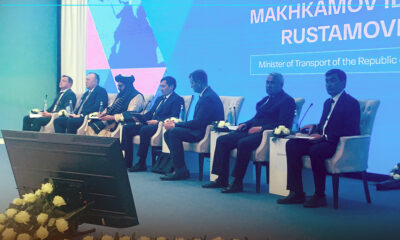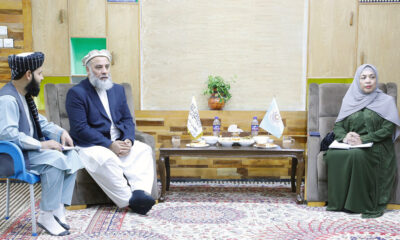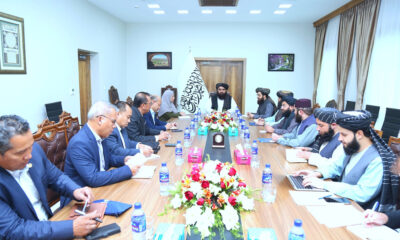Business
Pay cuts for Ghani and ministers, but pay rises for govt workers

The Ministry of Finance has finally agreed to increase the salaries of government employees, while the president and ministers will all take a pay cut.
The increased budget spends for government employees has been requested repeatedly by the Wolesi Jirga’s Finance and Budget Commission, which has twice rejected the draft budget on the grounds of salaries and the allocation of emergency funding.
The finance ministry announced on Monday it has allocated an additional 12 billion Afghanis (AFN) to salaries, of which half will be added to the salary fund at the start of the fiscal year (in April) and the balance will be added to the mid-year budget cycle.
Khalid Painda, the acting finance minister, also said the president and ministers will take pay cuts.
Members of the Wolesi Jirga commission felt however that the full amount should be rolled out immediately but the finance ministry said this was not possible.
“The salary increase must be accepted as 12 billion Afghanis, and this money for salaries must be paid at the beginning of the fiscal year; in most of the codes (funds) there is extra money, which needs to be reduced and the salaries increased,” said the committee chair Mir Afghan Safi.
The decision to increase the amount allocated to salaries comes after negotiations between the finance and budget committee of parliament and the finance ministry.
“On the issue of salaries, I promise to get six billion to finance the salaries, and we will implement it in the middle of the year and allocate twelve billion for next year,” said Painda.
In addition to this, members of the commission stated that government must respect the legislative authorities of the House.
“All those institutions that have not gotten a vote of confidence from the parliament are not authorized to sign financial letters, and if they do, they are accountable to the law in financial documents,” said Mohammad Azim Mohssini, a member of the Finance and Budget Commission.
However, Wolesi Jirga members who attended the commission’s meeting said part of the dispute over the draft budget has been resolved but that government needs to agree to other recommendations so that the budget can be tabled in parliament for approval.
Business
Azizi calls on Malaysian investors to invest in Afghanistan
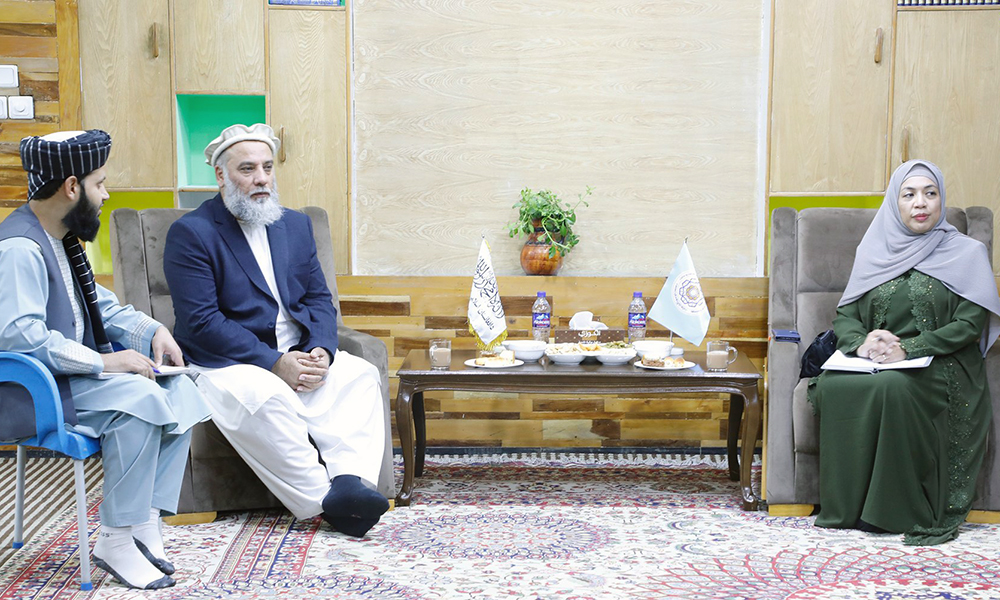
Nooruddin Azizi, Acting Minister of Commerce and Industry, met with representatives from the ministries of foreign affairs, defense and interior of Malaysia, along with other senior officials, on Wednesday and called on Malaysians to invest in Afghanistan.
The visiting delegation is being led by senior diplomat Dr. Shazelina Zainul Abidin.
According to the IEA’s foreign ministry, the two sides discussed bilateral trade, holding a business communication conference to strengthen trade relations between the two countries, the trade balance between Afghanistan and Malaysia, and creating a market for Afghan products, including carpets, cotton, and minerals.
According to the ministry, at the end of the meeting, the Acting Minister emphasized the increase of investment from regional countries in Afghanistan and called on Malaysian investors to also invest in Afghanistan.
Business
Afghanistan starts exporting via railway to Turkey

The Ministry of Interior says that Afghanistan has started exporting goods to Turkey via the Herat-Khaf railway line.
In a post on X, the ministry said: “Afghanistan’s exports to Turkey started in a calm atmosphere through the Herat-Khaf railway line.”
The ministry added that one train will run daily for a month and then two trains will run daily.
According to the ministry, the security of Khaf-Herat railway line is provided by the guards of the National Public Protection Agency.
Khaf-Herat railway project not only connects Iran and Afghanistan by rail, but also completes a 2,000-kilometer route along the east-west rail corridor from China, through Uzbekistan, to Afghanistan, to Iran, and on to Turkey and Europe.
As a landlocked country, this railway network will provide a safe route to connect with Europe via Iran’s railway network and Iran’s southern ports.
This railway line is strategic for trade between Iran and Afghanistan and will allow six million tons of goods to be sent between the two countries.
Business
Afghanistan, Kazakhstan to hold joint expo in Kabul
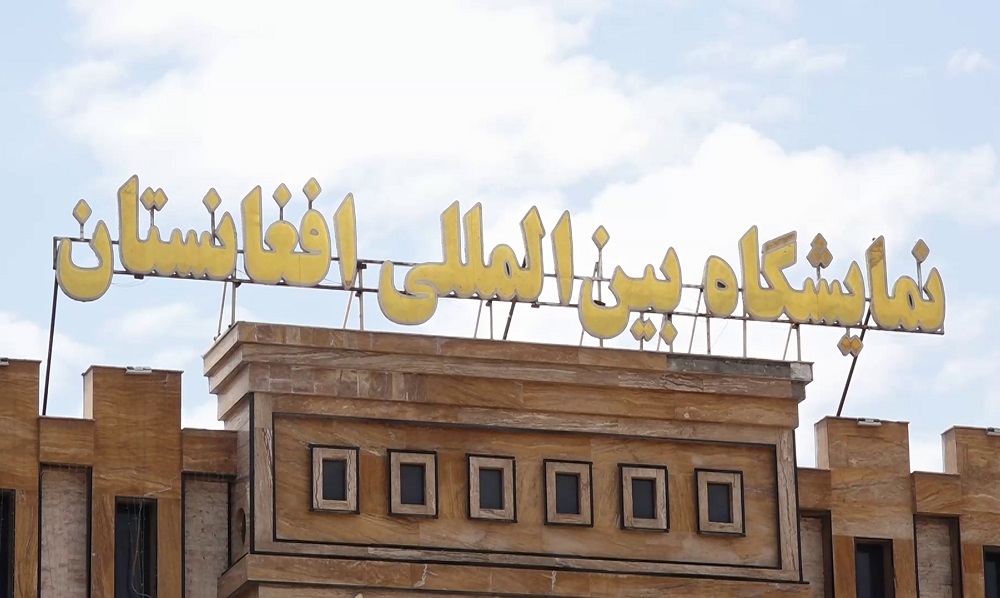
A joint expo between Afghanistan and Kazakhstan will be held in Kabul in the next four days, officials said on Sunday.
Officials of the Ministry of Industry and Commerce said that the two-day expo will be held for the purpose of expanding and strengthening trade relations between the two countries.
“This expo will be held as a follow-up of the Kazakh-Afghan international expo, which was held in the city of Astana, Kazakhstan, with the participation of a large delegation of the government and the private sector of the Islamic Emirate of Afghanistan,” Abdulsalam Javad Akhundzadeh, the spokesman of the Ministry of Industry and Commerce, said.
“At this expo, domestic products from different sectors of Afghanistan and the Republic of Kazakhstan will be put on display for two days.”
According to officials, 40 large Kazakh companies, and 40 large Afghan companies will exhibit their products.
Mohammad Saber Latifi, head of the Afghanistan International Expo Center, said that fruits, minerals and commercial services will be displayed at the expo.
During the expo, various memorandums of understanding for the trade of goods are also expected to be signed by companies.
-

 Sport5 days ago
Sport5 days agoRashid Khan threatens BBL pullout after Australia postpones Afghanistan T20I series
-

 Sport4 days ago
Sport4 days agoAfghanistan Champions League kicks off with grand opening ceremony
-

 Latest News3 days ago
Latest News3 days agoPakistan’s frontiers minister stresses ‘dignified’ return of Afghan refugees
-

 Regional4 days ago
Regional4 days agoIran’s foreign minister downplays drone attack, says Tehran investigating
-

 Latest News5 days ago
Latest News5 days agoTen people killed by floods in Helmand
-

 Business4 days ago
Business4 days agoAfghanistan’s economic prospects are bleak: World Bank
-

 Latest News4 days ago
Latest News4 days agoMore than 800 Afghan refugees deported from Pakistan in two days
-

 Regional2 days ago
Regional2 days agoIranian president lands in Pakistan for three-day visit to mend ties


